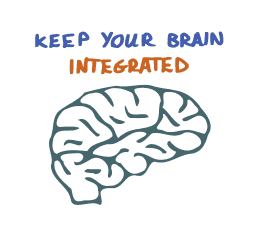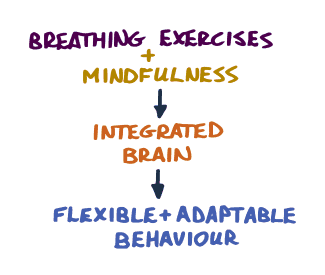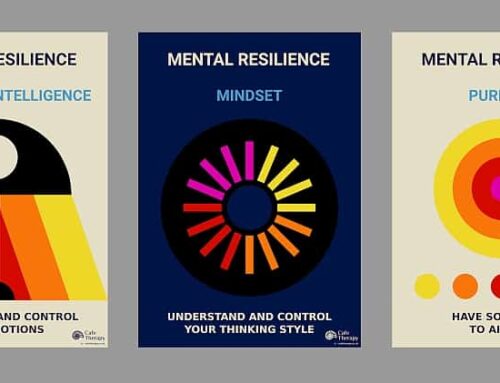Adaptability and the resilient mindset
In our recent blog article ‘How to be more resilient’ we presented a five-step plan to help you get started on the way to developing a resilient mindset. The first step in this plan is to ‘be adaptable’. That’s great, you might say, but how exactly do I go about becoming more adaptable? What do I need to do to make sure I respond to change in a positive way, always seeking the opportunities rather than searching for the downside?
The good news is that being flexible and adaptable is something that can be learned. Just like physical skills, you can practice and develop the mental skills for building a resilient mindset until they become your standard approach. So what are these mental skills that you can practice and develop? Where do you start?
First you need to understand a little bit about brain anatomy and how your brain works. A good brief overview video containing all you need to know in just a few minutes is Dan Siegel’s Hand model of the brain.

Keep your brain integrated
Dan talks about keeping your brain integrated (all its parts working together) to give you the best chance of making good decisions and responding to situations in a way that gets you the best outcome – essentially being flexible and adaptable. So how do you keep your brain integrated? Many people, including Dan Siegel and the team here at Cafe Therapy, recommend mindfulness and breathing exercises. An integrated brain is one of the fundamentals of a resilient mindset.
Mindfulness
Practising mindfulness helps you to become more aware of your thoughts and feelings, and crucially, quickly noticing when your brain has become unintegrated. By taking a step back internally and observing how your brain is functioning (whether all its parts are working together or not) puts you on the path to bringing them back together and getting the benefits of integrated thinking and responding – being flexible and adaptable. Once you know how it feels to be integrated and unintegrated, you can quickly spot which state you are in and apply techniques such as breathing exercises to reintegrate yourself. A resilient mindset thrives on practising this kind of self-awareness.
Breathing exercises
Practising controlled deep breathing techniques has a profound effect on your state of mind. You become more relaxed and aware of your body and mind, and crucially, create the space for the process of reintegration to happen. You do not need to sit cross-legged on the floor or be in a perfectly quiet room, you just need to know how to control your breath and use the deep breathing technique to get your brain back together and functioning at its best. Practising controlled deep breathing techniques is also a great way to manage stress and anxiety.

Developing a resilient mindset – together with Cafe Therapy
So there we have it. Use breathing exercises and mindfulness to keep your brain integrated. This gives you the power to be more flexible and adaptable, which then plays out in practical ways through better decision-making and actions.
Resilient people handle everyday stress better, are more productive and tend to take setbacks in their stride. If you think that finding out more about the nuts and bolts of developing a resilient mindset would benefit you and your team, then Cafe Therapy can partner your company to deliver practical, fun training and workshops right in your workplace. Our thoughtfully designed presentations and activities bring people together and foster a spirit of community and co-operation while delivering enjoyable programmes that bring real results for your company. Drop us an email and start a conversation with Cafe Therapy.





